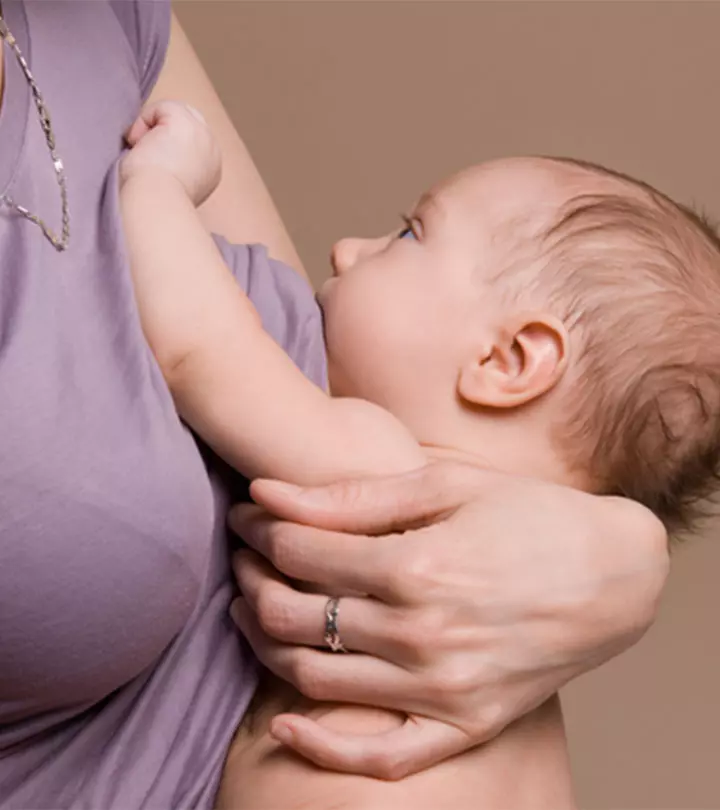

Image: Shutterstock
Has your stomach been feeling a little funny lately? Pregnant women are likely to think that it’s the baby causing the feeling but read on to learn more about the discovery that for every four pregnant women, three end up experiencing diarrhea, constipation, and other kinds of bowel disorders.
That sounds pretty heavy!
This discovery was made in a study titled “Functional Bowel Disorders in Pregnancy”. The study was conducted by Assistant Professor Scott Graziano (MD from the Department of Obstetrics and Gynecology of Loyola University, Chicago Stritch School of Medicine), and Payton Johnson, who studies at Stritch as a medical student (1).
They interviewed a total of 104 women and asked questions about their pregnancy in the first trimester. Around 66 of those women completed a questionnaire in their third trimester as well. What they found out was that almost 72 percent of these pregnant women spoke about at least one disorder that troubled their bowel system (including constipation, bloating, irritable bowel movement and diarrhea) in the first trimester and it was also found that about 61 percent of them experienced similar difficulties in the third trimester too.
You might be wondering what you can do to avoid these bowel difficulties. First, let’s try to understand why they happen. The authors of the study discovered that the disorders related to the bowel function happen primarily because of the bodily changes experienced by pregnant women.
Hormones such as estrogen, among others, impact intestinal motility. Given the intense pendulating tendencies of these hormones, pregnant women end up feeling a change in their bowel routine. Furthermore, with each passing month during the pregnancy, the expanding uterus causes physical shifts in the bowel as well, causing changes.
Image: Shutterstock
There are other reasons responsible for the alterations of bowels regarding the regularity of movement and functional aspects. These include shifts that occur when women change their exercise patterns or introduce prenatal vitamins in their diet that contain iron – which is an agent that leads to constipation. Add to that some dietary and posture changes, and you have an even bigger impact on your bowel movement.
But you don’t have to give up on your constipation woes just yet! There are plenty of ways to take care of these issues. We’ve made a brief list here of things that you need to take care of to alleviate your bowel issues as much as possible:
- Liquid intake: Befriend all kinds of liquids. Water, prune juice and other varieties of fruit juice are your best friends. Stay away from unpasteurized juices, however, as they may cause health issues (2).
- Fiber: When it comes to food, choose the ones that are rich in fiber. Fruits, whole-grain items, bran cereal, and vegetables are very fibrous.
The study discovered that most pregnant women end up consuming only 16-17g of fiber every day, which is well below the recommended amount. Your goal should be to consume at least 28g of fiber per day (3).
- Exercise: Indulge in walking or another form of exercise in your daily routine. Exercise is considered as one of the best ways to cure constipation, and a little bit every day can certainly go a long way (4).
- Smaller Meals: Reducing the size of meals and increasing their frequency over the course of the day is known to prevent conditions such as morning sickness, heartburn and other digestive issues in pregnant women (5).
- Laxatives: Stool softeners and other laxatives are sometimes recommended for pregnant women with constipation issues. However, they can cause side effects, so make sure that you consult with your doctor before using them (6).
As uncomfortable as it might sound, problems related to the bowel system don’t really have a negative impact on the standard of living in case of pregnant women.
Yes, you do end up using the bathroom a lot more than usual, but it’s all right, it happens to the best of us! But do follow the advice we’ve given here, and you’ll be able to minimize the discomfort. Take care!
Community Experiences
Join the conversation and become a part of our nurturing community! Share your stories, experiences, and insights to connect with fellow parents.













